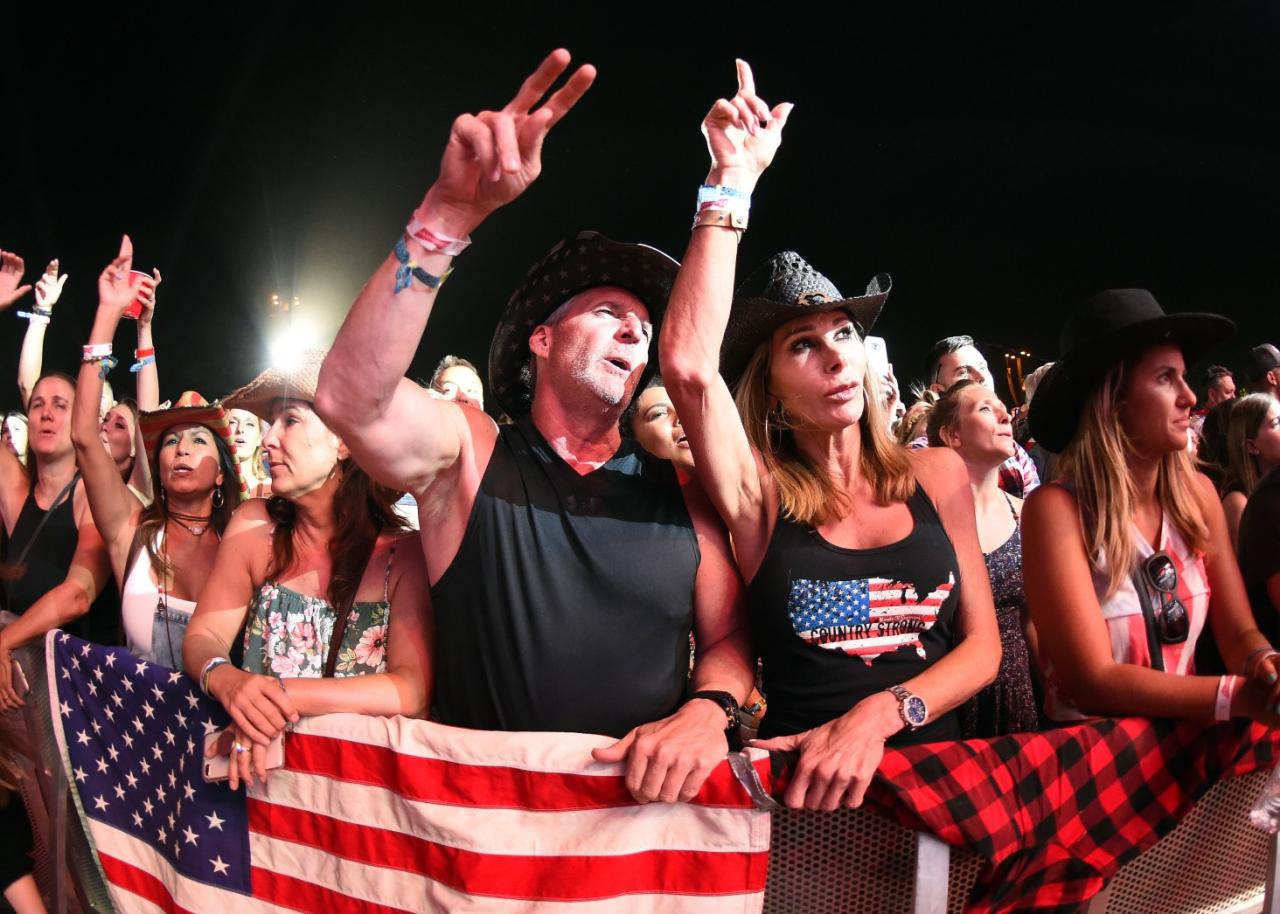Country Music Festival Canceled: The unexpected cancellation of a major country music festival sends ripples far beyond disappointed fans. This event highlights the complex interplay of economics, public sentiment, and logistical hurdles inherent in large-scale events. We’ll dissect the financial fallout, explore the social media storm, and examine the long-term implications for future festivals, offering actionable insights for organizers and attendees alike.
From the staggering economic losses incurred by local businesses to the emotional rollercoaster experienced by fans, this cancellation serves as a potent case study in risk management and event planning. We’ll analyze the data, unpack the social media chatter, and provide a clear picture of what went wrong and how to prevent similar situations in the future. The impact extends beyond immediate losses; it raises crucial questions about the future of large-scale entertainment and the evolving expectations of consumers.
Fan Reaction and Public Sentiment: Country Music Festival Canceled

The cancellation of a major country music festival sends ripples far beyond the immediate organizers and performers. Understanding the public’s reaction, particularly on social media, is crucial for assessing the event’s long-term impact and informing future strategies. Analyzing the diverse sentiments expressed across various demographics provides valuable insights into audience loyalty and the overall health of the event’s brand.Social media became a virtual town square for expressing disappointment, anger, and even a touch of resignation following the festival’s cancellation.
The sheer volume of posts, comments, and shares provides a rich dataset for understanding the emotional landscape surrounding the event. Sentiment analysis tools could be employed to quantify the prevalence of positive, negative, and neutral sentiments, offering a clearer picture of the overall public mood.
Social Media Response Themes
The dominant themes emerging from social media posts included disappointment over lost travel plans and ticket costs, frustration with the lack of clear communication from organizers, and anger directed at perceived mismanagement. Many fans expressed concern about the potential loss of income for local businesses reliant on festival attendance. A smaller, but vocal, segment expressed understanding, citing unforeseen circumstances like extreme weather or logistical challenges as potential reasons for cancellation.
The use of relevant hashtags, such as #CountryFestCancelled or the festival’s official hashtag, allowed for effective tracking of the conversation across multiple platforms.
Demographic Variations in Reaction, Country Music Festival Canceled
Reactions varied significantly across different fan demographics. Younger fans (18-25) tended to express their frustration more directly and visibly online, utilizing memes and humorous commentary alongside expressions of anger. Older fans (45+), while equally disappointed, often displayed a more measured response, expressing concerns about refunds and the potential impact on future events. Geographic location also played a role; fans who traveled long distances to attend the festival expressed greater levels of anger and disappointment compared to those living closer to the venue.
This highlights the importance of targeted communication strategies tailored to specific audience segments.
Long-Term Impact on Fan Loyalty and Future Attendance
The cancellation’s long-term impact on fan loyalty and future attendance hinges on several factors, including the organizers’ response to the situation, the transparency of their communication, and the effectiveness of their refund and compensation policies. A swift and empathetic response, coupled with fair compensation, could mitigate negative sentiment and preserve fan loyalty. Conversely, a slow or inadequate response could severely damage the festival’s reputation, leading to decreased attendance in future years.
Consider the case of the Coachella festival in 2020 – its handling of the pandemic-related cancellations, including its commitment to ticket rollovers, ultimately preserved its brand reputation and maintained high levels of fan loyalty. Conversely, a poorly handled cancellation could lead to the same fate as the ill-fated Fyre Festival, which suffered lasting reputational damage.
Hypothetical Image Illustrating Fan Emotions
Imagine a collage. One side depicts vibrant, happy images of past festivals – smiling crowds, energetic performances, and sun-drenched fields. This represents the positive memories and anticipation. The other side shows stark contrasts: a rain-soaked festival ground, frustrated faces on social media, and angry comments expressing disappointment and outrage. This represents the negative emotions stemming from the cancellation.
The center of the collage would be a blurred image representing the uncertainty and anxiety felt by fans waiting for updates and resolutions. The overall effect conveys the range of emotions, from excitement to disappointment to anger, that characterized the online response.
The cancellation of this country music festival isn’t just a local setback; it’s a stark reminder of the fragility of large-scale events and the interconnectedness of various sectors. Understanding the economic impact, analyzing public sentiment, and implementing robust contingency plans are crucial for future success. By learning from this experience, organizers can build more resilient events, minimizing risk and maximizing the positive impact on both attendees and the surrounding community.
The future of large-scale events depends on adapting to unforeseen challenges and consistently prioritizing the needs of all stakeholders.